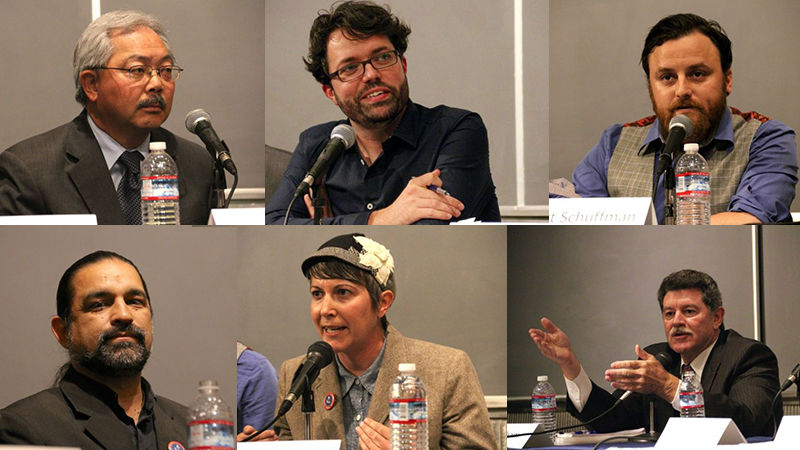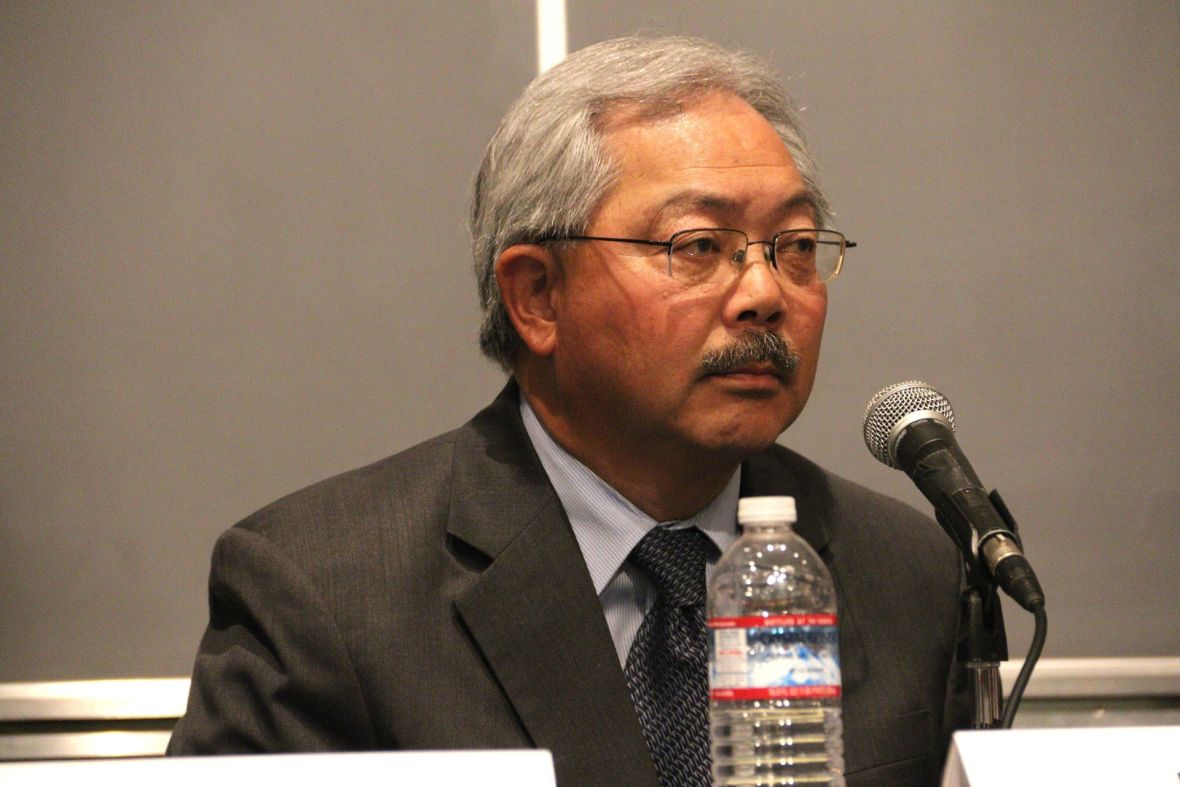Though the incumbent mayor has proven difficult to reach, a look at Lee’s record speaks volumes about his priorities in the arts. Yes, his pro-tech policies have been blamed for the recent exodus of longtime San Francisco artists, but he’s also acted to alleviate financial pressures for artists; in May, Lee’s office announced a plan to invest $7 million in programs supporting the arts over the next two years. The “Shared Prosperity for the Arts Package” provides financial support to local arts organizations and $1 million in grants that may be used to rent or purchase artistic spaces — in addition to funding for the San Francisco Arts Commission (SFAC) to research the feasibility of providing affordable housing to artists.
“Artists have played an immeasurable role in shaping San Francisco into the city it is today,” said Lee, after the funding increase was announced. “The arts and culture sector also helps fuel our economy, drawing $1.7 billion in tourism each year. That is why we must act now to keep artists here so that they can continue to contribute to the vitality of our city. This increase in arts funding will help ensure that artists can share in the prosperity of this rapidly growing economy.”

“Broke Ass” Stuart Schuffman
Former TV show host turned Bay Area blogger/character, “Broke Ass” Stuart Schuffman is a tireless self-promotion machine who jumped into the mayoral race “because the world needs San Francisco to be the haven for people who don’t fit in anywhere else.” He’s also said that he’s running as a “journalistic experiment,” yet his tenacious campaigning exudes a seemingly genuine desire to help the city. Here are his answers:
What are the most pressing issues currently facing artists in San Francisco?
The most pressing thing for artists in SF is the lack of affordable housing and workspace. So many people I know have been evicted, or displaced in other ways, and what was once a thriving and pulsating art scene has been dealt a massive blow. It’s been heartbreaking to see so many of our best and brightest have to leave the city and go to Oakland, Portland, LA or somewhere else.
If elected, how would you use the position to help local artists?
I’d like the city to invest in more housing and workspace and figure out ways to protect the little that we already have. I’d also like to see P Segal’s San Francisco Art House Project take flight. The idea for it is: we have so many tech incubators, why don’t we have any art incubators? The Art House Project would be one of them.
What else would you like to do for the local arts scene if elected?
I’d love to put more of the city’s arts funding towards public art projects. It’s great that it currently goes to supporting such things as the opera and the symphony, but I’d love to be able to create more art grants that help local artists get to create art that lives in our glorious city.
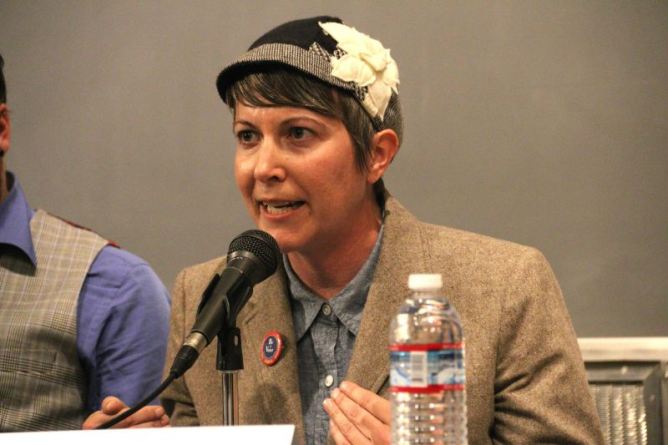
Amy Farah Weiss
Amy Farah Weiss made a name for herself when she led the charge against the construction of a Chase Bank on Oak and Divisadero streets — favored by Lee’s Office of Economic and Workforce Development — which displaced two small, independently-owned businesses. With decades of experience in the nonprofit sector, she is outwardly passionate about helping the little guy.
What are the most pressing issues currently facing artists in San Francisco?
According to the Arts Element of the San Francisco General Plan, our city has a goal to recognize the arts as necessary to the quality of life for all segments of San Francisco. However, the culture makers, arts organizations, and cultural venues that contribute to the unique city-wide and neighborhood character of San Francisco have been experiencing rapid displacement due to the economic and development policies instated by the Lee administration after the global financial collapse. For instance, public utilities of culture such as the Elbo Room, the Hemlock Tavern, and CELLspace/InnerMission have all been threatened with displacement for new development projects over the past year, and displacement of our neighbors and cultural contributors (including artists) through evictions has skyrocketed since Lee took office in 2011.
If elected, how would you use the position to help local artists?
Over the last 11 months of my mayoral campaign I have engaged in grassroots efforts to protect at-risk artist studios and cultural venues (such as Inner Mission/CELLspace at 2050 Bryant and the Redlick Building at Mission and 17th) and participated in the call for increased funding for artists who support neighborhood cultural enrichment through Arts for a Better Bay Area (ABBA). I will continue taking a stand to protect cultural venues and arts organizations and will also work with city-wide arts and culture organizations and artists to develop and implement new programs that employ artists in service to the well-being of our neighborhoods. One of my first acts as Mayor will be to begin a voluntary housing-affordability registry for people who work in the city (including artists) and currently pay more than 30% of their income for rent. This registry will ultimately be used in order to connect low- to mid-income workers with affordable housing opportunities (some of which will be developed through my plan to support the financing, design, and construction of additional dwelling units within thousands of parcels already identified by the Planning Department).
What else would you like to do for the local arts scene if elected?
Neighbors Developing Divisadero (the community-based organization I founded in support of inclusive, culturally-enriching, and sustainable development in 2011) has been fiscally sponsored by Intersection for the Arts’ Incubator Program for over a year now. I will work towards enhancing programs such as Intersection’s incubator services that provide much-needed funding and management support to both established and emerging artists. My “transitional eco-village” policy solution for providing interim housing and additional services for thousands of our homeless neighbors will re-activate and beautify over 100 underutilized and blighted city properties (as indexed by Cal Berkeley professor Nicholas de Monchaux’s Local Code project) and provide employment for mental health/public health workers, permaculture workers, local artists, manufacturers, and the Burning Man community (headquartered in SF) in support of well-being, space-making and off-grid technologies.
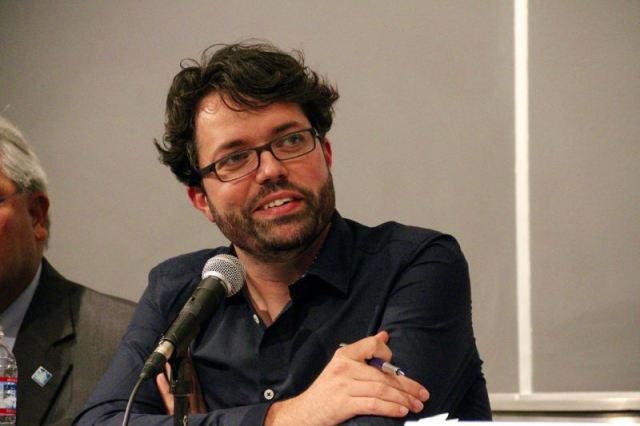
Reed Martin
Reed Martin is a designer and tech sector employee with a significant amount of local political experience. An avowed independent, he’s worked on several local political campaigns (last year’s Props A and B) and served on the the San Francisco Transit Riders board.
What are the most pressing issues currently facing artists in San Francisco?
Today, affordability and lack of space are the biggest issues facing artists in San Francisco. As we’ve seen real-estate costs skyrocket, it becomes too expensive to live in San Francisco and to house spaces that support the arts. In the last few years alone, we’ve seen a number of studio spaces get priced out of the Mission and live/work spaces get converted to offices or condos.
If elected, how would you use the position to help local artists?
The San Francisco General Plan lays out a great framework for commitment to the arts, but it hasn’t been meaningfully updated in decades. There are a few policies we should enact immediately to protect affordability for artists.
First, we need a comprehensive purchasing program from the city to purchase and maintain art space, managed by the Arts Commission. My plan calls for initially setting aside up to $250 million for these purchases. In addition to strengthening zoning laws on existing art spaces, the city would require first right of refusal on any property currently zoned for art activities, as well as on a number of properties that are identified as potential future space. Any time these properties change hands, the city would have the option to purchase the property before being made available to third parties.
Second, we need to simplify applications for affordable housing and Below-Market Rate units for artists. One critical concern today is that these applications require income reporting and forecasting, something that artists frequently find difficult as their income is inconsistent throughout the year.
Third, we need to work strongly with the large number of tech companies in the Bay Area to help ensure a commitment to the arts. National art foundations and endowments have been decreasing funding across the country; we simply cannot rely on national funds to provide adequate support to local artists. As we’ve seen with a number of collaborations, from sponsorship of the Bay Lights project to tech/art space like Code & Canvas, there is great opportunity to leverage the tech industry’s creative side to ensure a commitment to the arts in San Francisco.
What else would you like to do for the local arts scene if elected?
Celebrating the arts in San Francisco goes beyond affordability, letting San Franciscans of all walks of life embrace and gain exposure to our vibrant art scene. From music to literature to painting to media arts, San Francisco can celebrate the power of art in our city in our public space. That means actively encouraging and supporting art in our neighborhoods and on our streets.
One of my visions is to create a San Francisco “Nuit Blanche,” an all-night arts festival happening in cities around the world. Traditional museums, public art galleries, and cultural institutions would stay open all night free of charge. Designated spots around San Francisco from the Embarcadero to Golden Gate’s Music Concourse would be closed off and turned into public art space for galleries, performances, and cultural celebrations.
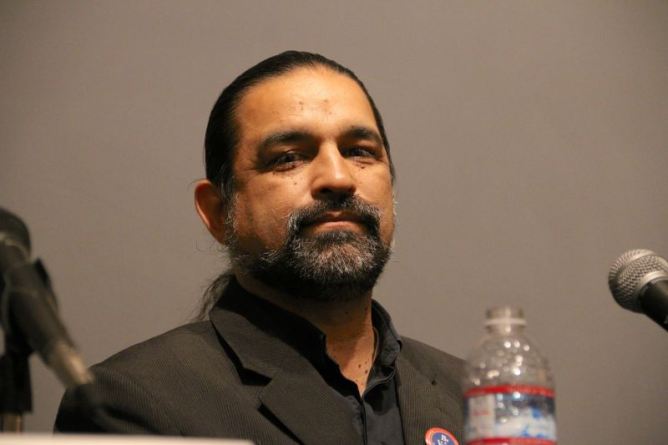
Francisco Herrera
A longtime local activist who co-founded the San Francisco Day Labor Program, Francisco Herrera has yet to answer our questions, despite repeated requests. But being a musician who has his own campaign theme song, and who even sang a capella at a forum organized by the San Francisco League of Women Voters, we have a feeling that the needs of local artists are on his mind.
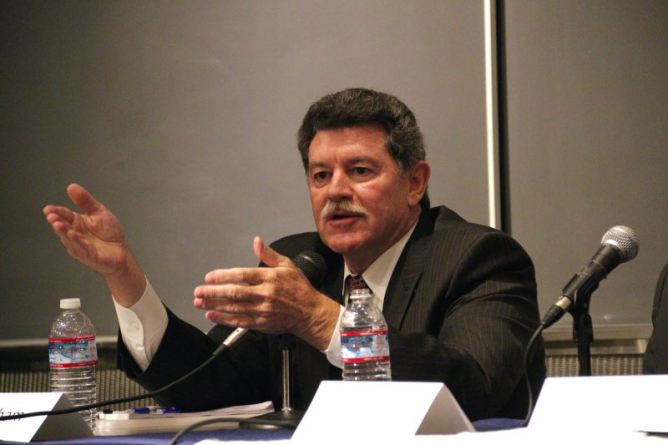
Kent Graham
Candidate Kent Graham is a retired hospital administrator with 35 years of business management experience who says he’s running because he feels that “San Francisco deserves a manager running the show and not a politician.” After repeated requests for input, and after hours of scouring online for any of his opinions on San Francisco’s arts scene, we have come up empty-handed. If he does get back to us, we will post his responses here.
